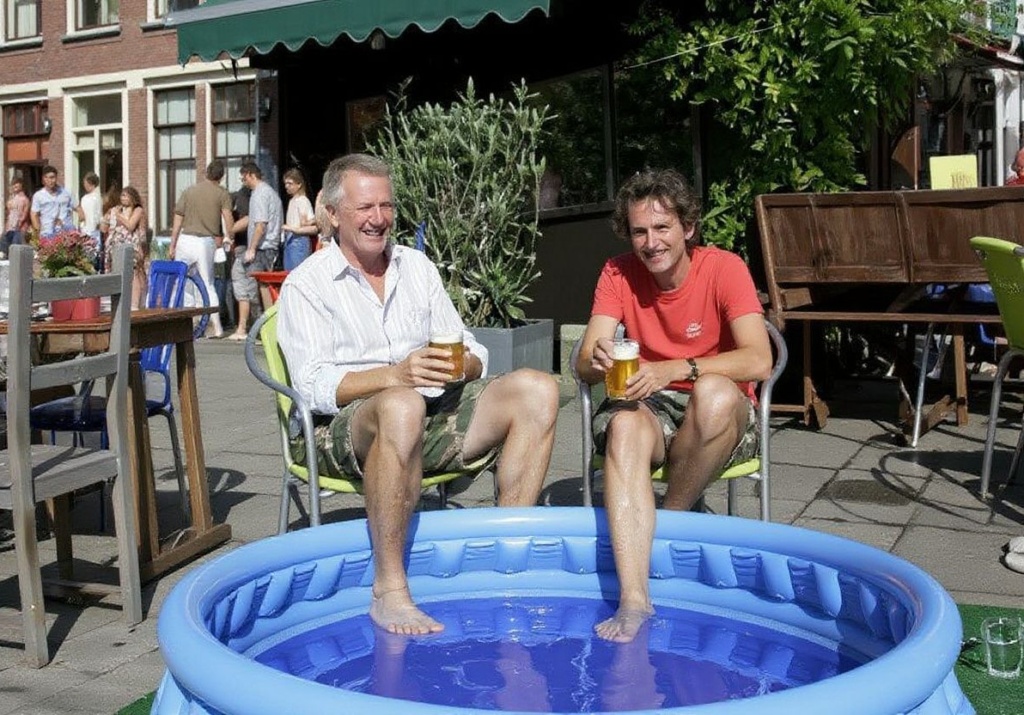
If you want to earn the highest starting salaries as soon as you graduate, you need to be in the right place at the right time.
Specifically, you should aim to get a job in one of the top 10 countries that pay graduates the highest starting salaries.
To improve your chances, you should also aim to have earned a good bachelor’s degree in a subject that has a track record of leading to the highest-paying jobs in one of these countries too.
This is important as it’s usually hard for someone with a degree from an Indian university to get a job in the US, for example.
But if you have a degree from a US university, you can qualify for up to three years of work in the US that’s related in the degree through the Optional Practical Training programme.
Most countries have similar schemes where university graduates get to stay and find work legally — and even earn points to qualify them to become permanent residents.
Having a bachelor’s degree from any one of the top 10 countries that pay graduates the most is a requirement — having a master’s or PhD is a bigger advantage.
That’s not to say it’s impossible for you to work in any of these countries if you didn’t study there — if you’re a high potential individual, you’re welcome in the UK even without a job offer, for example.
And that’s not to say you can’t ever earn a lot if you don’t have a bachelor’s degree — there are diploma courses that have led to well-paying jobs too.
The point is, if you tick all of the following, you stand the greatest chance to earn the biggest salaries right after uni:
- At least a bachelor’s degree in an in-demand field like computer science and law
- Your university is in one of the top 10 countries that pay fresh graduates the most
- You fulfill all requirements to work legally in one of those countries after graduating
Below are the top 1o countries with the highest average salaries, according to data from OECD in 2021.
Note that the figures are based on all workers, not just graduates.
- US: US$74,738
- Luxembourg: US$73,657
- Iceland: US$72,047
- Switzerland: US$68,957
- Denmark: US$61,331
- Netherlands: US$60, 923
- Belgium: US$59,100
- Norway: US$58,377
- Austria: US$58,189
- Australia: US$56,600
To find the world’s highest starting salaries, we’ve looked into a combination of the most up-to-date and most authoritative data of each of the country above.
Check if the country you studied in is listed among the top 10 countries in the world with the highest starting salaries below:
 An entry-level job in California is US$32,670 a year. This comes up to US$2,722 per month. Source: Frederic J. Brown
An entry-level job in California is US$32,670 a year. This comes up to US$2,722 per month. Source: Frederic J. Brown
US
Several factors will influence your pay, including which company you work at, which US state it’s in, which school you went to, and which major you took.
The US Bureau of Labour Statistics states that graduates with a business degree earn US$65,000 on a yearly basis.
If you have a law degree, you stand to earn US$80,000 in the private sector and US$60,000 in the public sector.
Those graduating with a Fine Arts major can earn US$50,533 annually.
The state your entry-level job is based at can influence your salary as well.
An entry-level job in California is US$32,670 a year. This comes up to US$2,722 per month. In Wyoming and Minnesota, you’ll only make US$30,587 or US$29,978 respectively annually.
 One of Amazon's headquarters is in Luxembourg. Source: Jim Watson
One of Amazon's headquarters is in Luxembourg. Source: Jim Watson
Luxembourg
According to Talent.com, business graduates stand to earn US$76,179 on average. Entry-level positions start at US$54,413.
A law graduate with no experience or with three years of practice takes home between US$43,531 to US$59,855 in a year.
Starting salaries in the Arts and Culture industry typically range between US$30,402 and US$79,988.
Luxembourg may not be one of Europe’s most popular countries but it has its charms, from some of the region’s most spectacular medieval castles and more Michelin-starred restaurants per capita than any other country.
It’s pretty sweet for fresh graduates too. Organisations like Amazon, Skype, and PayPal call Luxembourg home. And the cost of living is generally lower than London, New York and Paris.
Rent is for a one-bedroom apartment within and outside of the city centre is 1,614.09 and 1,335.83 euros respectively.
 Iceland is a doorway to some of the world's best natural wonders and the highest starting salaries. Source: Halldor Kolbeins
Iceland is a doorway to some of the world's best natural wonders and the highest starting salaries. Source: Halldor Kolbeins
Iceland
Another unlikely addition to this list is the land of the gorgeous Northern Lights: Iceland.
According to emolument, sales and business graduates can earn an average salary of US$96,000 yearly.
For those that studied law instead and are now looking for jobs, you can expect a yearly salary of US$80,421.
For the Art graduates, the Ministry of Tourism, Trade and Culture announced in 2022 that artists’ salaries will increase to US$39,960 yearly.
 People watch the Lake Stage from the shore of Lake Geneva during a concert by Swiss band Annie Taylor at the opening of the Montreux Jazz Festival in Montreux on July 2, 2021. Source: Fabrice Coffrini
People watch the Lake Stage from the shore of Lake Geneva during a concert by Swiss band Annie Taylor at the opening of the Montreux Jazz Festival in Montreux on July 2, 2021. Source: Fabrice Coffrini
Switzerland
According to Talent.com, a fresh graduate in Switzerland can earn US$200,946.
But here’s the catch. Switzerland offers some of the highest starting salaries as the living costs here is high.
A meal in an inexpensive restaurant costs 25 euros on average and basic utilities (electricity, heating, cooling, water, garbage) cost 200 euros on average.
Rent for a one-bedroom apartment ranges between 1,746.17 euros and 2,093.78 euros, depending on how close to the city centre it is.
 Graduates in the arts sector have plenty to look forward to. Source: Michel Lipchitz/AP Pool
Graduates in the arts sector have plenty to look forward to. Source: Michel Lipchitz/AP Pool
Denmark
In Denmark, if you have graduated with a bachelor’s degree, you can earn US$6,795 monthly which amounts to US$81,540 yearly.
If you have a master’s or a PhD, then you will be looking at a monthly income of US$8,571 and US$9,516 respectively.
Note that this data is from 2021 and may have changed since.
According to another source, an entry-level lawyer in Denmark can earn roughly US$90,656 yearly and even up to US$126,041. In the next five years, their salaries are expected to increase by 18%.
Arts and Culture graduates stand to earn between US$2,942 and US$7,845 monthly.
Here’s another piece of good news for those who recently graduated with a master’s degree from a Danish institution.
You can now start working from the time you apply to change your study visa into the employment-based permit.
International students who stay on to work in Denmark have a track record of doing well here, according to a news report.
Forty percent of graduates from 13 years ago are still in the country, and have each contributed US$468,134 to the economy over that time.
 Life can be good in Amsterdam, even for fresh graduates. Source: Maartje Blijdenstein
Life can be good in Amsterdam, even for fresh graduates. Source: Maartje Blijdenstein
The Netherlands
According to I Am Expat, the minimum wage in the Netherlands is based on age but is revised every six months.
Business or business economics graduates can expect to earn US$32,719 yearly while fresh lawyers will have an annual income of US$30,102.
A graduate from the visual arts programmes will earn US$17,014 annually.
It’s good to note that working in the Netherlands can be quite structured.
The country boasts a stable economy with encouraging foreign investment and good tax benefits.
Highly skilled workers, including engineers, financiers, marketing and healthcare. are always in demand here.
Belgium
Bachelor’s degree holders generally start off earning US$39,888 annually according to Expatrist.
While we couldn’t find the highest paying salary for a business graduate, a law graduate will earn US$45, 807 yearly.
For Fine Arts graduates, you can expect to earn an annual income of US$24,107 to US$59,484.
While these figures are lower than Belgium or Switzerland, note that you may be working fewer days to earn these salaries.
This is because Belgium officially recognised a four-day week starting last November.
This makes Belgium the first country in the EU, and only the third in the world, after Iceland and New Zealand, to formally introduce the four-day workweek as an option for workers.
 Norway is known for its beautiful mountains, iconic fjors, great outdoors and some of the highest starting salaries in the world. Source: Lionel B0naventure
Norway is known for its beautiful mountains, iconic fjors, great outdoors and some of the highest starting salaries in the world. Source: Lionel B0naventure
Norway
Across all industries, a graduate can expect to earn around US$5,189 monthly. This amounts to US$93,402 annually.
The country does have a high cost of living so if you are considering working in Norway, it’s best to be going in on a managerial level.
Austria
In the heart of Europe, and amongst its imperial palaces and amazing pastries, you’ll find a country with some of the highest starting salaries for graduates.
An entry-level business analyst can make US$66,437 annually as a starting point and move upward to earning US$117,298. An MBA holder can earn up to US$105,000.
Early-career lawyers can earn around US$73,754, which can go up to US$133, 563 annually.
Now, if you have studied here and are thinking of staying on to find work, you are already a step ahead of other international graduates.
There is a current shortage of skilled workers of some 124,000 jobs, so graduates will have an opportunity to access many jobs here.
 Australia is a popular for many reasons, from its amazing outdoors to having some of the highest starting salaries. Source: Rodger Bosch
Australia is a popular for many reasons, from its amazing outdoors to having some of the highest starting salaries. Source: Rodger Bosch
ustralia
Salaries in the Land Down Under vary according to states.
The highest starting salaries for graduates can be found in Victoria — at US$45,764 annually — followed by the Australian Capital Territory at US$45,403.
Those graduating with an MBA can rejoice — you are looking at earning between US$56,591 and US$203,064 annually.
According to Glassdoor, a fresh law graduate can earn US$52,280 yearly in Sydney.
Fine arts graduates can expect to earn US$41,944 yearly according to the Australian Bureau of Statistics.










